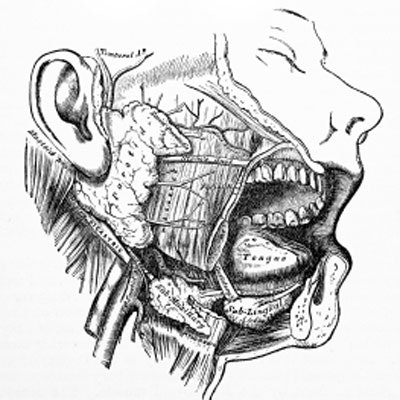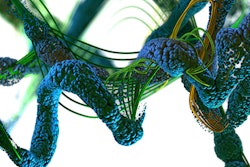
Increased meat consumption, cooking, agriculture, and diseases likely led to significant differences in the saliva of humans and their closest evolutionary relatives, gorillas and chimpanzees, according to a recent study.
Researchers found that human saliva was waterier and contained different proteins than the saliva of great apes. Over time, the properties of human spit likely changed to better adapt to their environments and life changes, like eating cooked food, raising livestock, and being exposed to new germs, and likely helped humans shift away from nonhuman primates on the evolutionary scale, they noted.
"This study opens up the possibility that certain properties and components of human and nonhuman primate saliva might have evolved in a lineage-specific manner, and that salivary proteomes in humans and nonhuman primates could be hitherto unnoticed hotbeds of evolutionary activity," wrote the authors, led by Supaporn Thamadilok, PhD, of the oral biology department at the University at Buffalo School of Dental Medicine (Molecular Biology and Evolution, October 15, 2019).
When things began to change
Saliva helps protect tooth enamel, aids in the digestion of food, regulates microbes in the mouth, and helps protect against pathogens. Many of these functions occur due to salivary proteome, which are the many proteins that exist within the fluid. Researchers believe proteome may offer further insight into how humans evolved from great apes.
Scientists gathered saliva from humans and chimpanzees, gorillas, and rhesus macaques. These primates were chosen because gorillas and chimpanzees are humans' closest evolutionary relatives, and macaques share a more distant ancestor with humans.
The overall protein content in human saliva was about half of the amount found in the nonhuman primates, researchers found. The saliva found in humans was more proficient in breaking down starches and modifying fats. Also, it contained larger amounts of amylase, an enzyme needed to break down starches into sugars, and carbonic anhydrase VI, an enzyme involved in taste perception that was never present in nonhuman primates.
Additionally, human saliva no longer contains latherin, a protein that helps fluids become frothy and was only found in the saliva of great apes. Humans likely lost the need to keep producing latherin because they no longer grew fur coats or engaged in social grooming, the authors noted.
Furthermore, larger quantities of parotid secretory proteins were found in the chimpanzees, gorillas, and macques, while higher levels of secretory immunoglobulin components were found in humans and chimpanzees. Both of those proteins help the body fend off diseases. The salivary proteins with human-specific features may have been driven to change due to the diseases humans came into contact with as they evolved into top predators, according to the authors.
Though the findings are interesting, the authors noted that the possibility that uncontrolled environmental or dietary factors might have influenced the results of this study cannot be fully refuted. Also, the study is limited because it only compares the most abundant proteins in human and nonhuman primate saliva and only does so in a few of each species.
"Our findings here provide a necessary basis to assess in future studies whether the differences in the human salivary proteome observed here might have been caused by natural selection," the authors wrote.




















